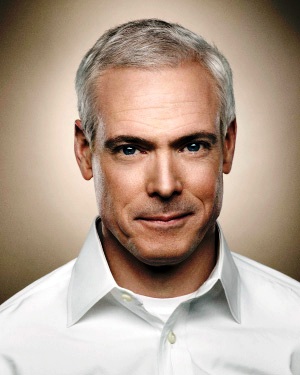Great by Choice

The ISPA (International Spa Association) 2012 Conference has begun at the Gaylord Palms in Orlando, Florida, and the theme is “Be Inspired.”
This comes at a great time as I am feeling the need for some re-motivation and inspiration. Last time ISPA was at the Gaylord Palms was in 2007. Walking into the lobby last night made me think about how long these past fiveyears have been, and at the same time how quickly time passes. Am I where I thought I would be five years ago? Probably not. Have things changed in the past five years? More than I could have imagined. Have some things stayed the same? Indeed …
Who better to inspire me than one of my favorite authors, Jim Collins. Five years ago at ISPA 2007, he spoke to our industry about the principles of Good to Great. He motivated us to be great, telling us that “good is the enemy of great.” Five years ago, after his talk, I started my “stop-doing” list. Today, looking not a day older, Collins spoke to our industry again. He focused on sharing the lessons from his new book, Great by Choice, which looks at the best practices of those companies that have thrived over the last five years, those companies that have thrived in chaos.
Collins, who takes an extremely data-driven approach to analysis, focused on three practices that have enabled companies with level five ambition to thrive in chaotic times, to grow during a recession, to get better during tough times.
1. Fanatic discipline
"Discipline is a 20-mile march, which enables consecutive, consistent performance." Great companies are not about one fabulous quarter, about one peak performance year, but are rather about delivering consistent, consecutive results, over and over again. This takes discipline and commitment. This 20 mile march requires the discipline to march even in the worst weather, i.e. the discipline to move forward even when the market conditions are poor. This 20-mile march also requires the discipline to march, not run, when the weather is balmy and the market is soaring. Indeed, Collins tells us, “the signature of mediocrity is chronic inconsistency.” Fanatic discipline enables consecutive consistent performance.
But discipline alone is not enough … great companies must also create and innovate, even in chaotic times.
2. Empirical creativity
However, both great and not great companies innovate … How do they innovate differently? Great companies are more empirical in their innovation. Great companies test and are data-driven. Great companies prove something small before making it big. Collins compares this to shooting bullets before bringing out the cannonball. Bullets are the test … once the test is successful, cannonballs come out.
The combination of fanatic discipline and empirical creativity, Collins muses, “gives you something to do when you get up in the morning, even if you are scared.” These have been scary times, and this system enables leaders to not be paralyzed by fear. Get up, do your 20 mile march, shoot your bullets. Indeed, asking the audience to raise their hands if they have feared for their business at some point in the last five years, most hands go up. At least we are honest!
3. Productive paranoia
Collins seems pleased at the hands shooting up in the air. Productive paranoia, he says, is another characteristic of the companies that have weathered the storm. “The only mistakes you can learn from are the ones you survive…” So it is essential to survive. To do that, you must worry about what can kill you, and channel this worry and knowledge into preparation, and training, and buffers. “Always worry about the facts that have not yet happened,” Collins encourages us. And remember that “bad decisions + good intentions = bad decisions.” Don’t let fear paralyze you. Use fear productively. Use fear to create a better company.
4. The twist: luck.
Collins ends by speaking about luck. Isn't it true that a significant part of success is luck? Aren't the successful companies “luckier” than those who don’t make it? Collins defines luck (good or bad) as an event that:
1. I didn't cause
2. Had a potentially significant consequence (good or bad)
3. Came as a surprise
Having identified events of luck or unluck, Collins studied the data. And the data shows that great companies are indeed not luckier than the average company. Average companies are not unluckier than great companies. Indeed, the explanation of success is not luck. Rather, the explanation of success is what you do with the luck or unluck that you get. Do you use lucky events as a defining moment? Do you use unlucky events to learn and become even better?
Collins’ conclusion: “Success is not a matter of circumstance; greatness is a matter of conscious choice and discipline.”
Today, I choose to be great. And I thank ISPA and Collins for the inspiration.
